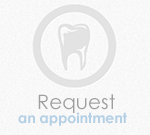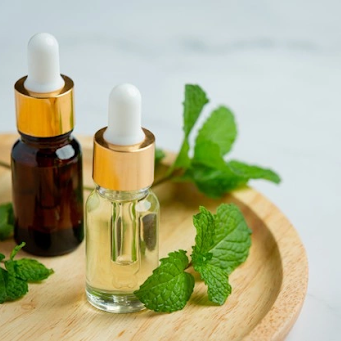 |
|
Home |
Services |
Team |
Our Office |
Contact |
|
| The Benefits of Essential Oils for Oral Health |
Essential oils are growing in popularity once again! Known for their unique healing and therapeutic benefits, essential oils have been used for centuries worldwide. The popularity of essential oils has blossomed throughout recent years, and their use in dentistry is no exception. This form of holistic medicine has been around since the ancient ages and is becoming more popular as more people are looking for holistic healing. Essential oils are used for a variety of ailments and are believed to aid the wellbeing of mind, body, and spirit alike. When it comes to dentistry the words "essential oils" bring antimicrobial mouth rinses to mind. However, essential oils have a much broader application in both dentistry and medicine. In this article, we are going to discuss different types of essential oils, their benefits, and how they can be used to keep your gums and teeth healthy and beautiful! Types of Essential Oils Clove Oil is extracted from a bud of the clove tree, an evergreen tree native to Southeast Asia, and is widely used in dentistry. Clove oil is rich in minerals, such as calcium, hydrochloric acid, iron, phosphorus, sodium, potassium, and vitamins A and C. Its main chemical compound is eugenol, which is full of antioxidants and insecticidal components. Clove oil can be used for topical application to relieve pain and promote healing. It also has the natural ability to restrict the growth of bacteria and can help fight mouth and throat infections. Thyme Oil and Tea Tree Oil are also commonly used in dentistry. Thyme belongs to the mint family and therefore is often used in mouthwashes to give flavour and freshness for oral health treatments. Whereas, Tea Tree Oil is a natural remedy for bad breath and contains ingredients that diminish plaque. The natural chemicals in these essential oils can help defend against tooth decay, gingivitis, and general oral infections. Peppermint Oil is one of the most widely used essential oils in oral care products due to its antibacterial, antifungal, and biofilm-inhibiting properties. Peppermint oil has the ability to inhibit biofilm formation in the oral cavity in addition to providing a therapeutic benefit in treating periodontitis, gingivitis, and halitosis. Peppermint is also known for its cooling and numbing properties which can effectively soothe tooth and muscle aches. Cinnamon Oil is antibacterial, antifungal, and antiseptic - which makes it an effective cleanser for every oral health care need, such as relief for a sore throat! Cinnamon oil also contains exemplary antimicrobial properties that protect against bacteria accountable for tooth decay. Lavender Oil is extracted from the lavender plant through steam distillation. The active ingredients in lavender oil are terpenes and sesquiterpenes. When used carefully, lavender oil provides psychological and physiological benefits. Although most consider lavender to be mainly used in aromatherapy, it also has anti-inflammatory and antimicrobial components. Lavender oil is known for its relaxing, carminative, and sedative effects and its ability to eliminate nervous tension. How to use Essential Oils for Oral Health Essential oils can be applied in various ways when it comes to oral health. One of the methods is called topical application or placing essential oils on the skin, mouth, teeth, etc. In this method, you can mix the essential oil with a carrier oil and gently apply to the required area. One common practice of topical essential oil application in dentistry is oil pulling. When essential oils are incorporated in oil-pulling techniques, they are added to another oil, such as coconut or olive oil, and are swished in the mouth for 5-20 minutes. Essential oils are powerful antioxidants that help to eliminate free radicals and prevent mutations, fungus, and oxidation in the cells. Even though essential oils can be found in over-the-counter mouthrinses, they can also be added to your oral hygiene products depending on your oral health needs. *Please note that essential oils should NOT be used for internal consumption other than for a mouthwash or tooth paste - even then you must spit it out after use and rinse with water! The Benefits of Essential Oils for Oral Health/Dentistry There are many benefits to using essential oils. They contain the same regenerating, oxygenating, and immune-strengthening characteristics of the plants from which they are extracted. Essential oils are powerful antioxidants which help to eliminate free radicals and prevent mutations, fungus, and oxidation in the cells. Owning to their antimicrobial and antibacterial properties, essential oils can be found in over-the-counter mouthrinses. There are many more ways to use essential oils in dental offices. For example, treatment of dental-implant-material surfaces with cinnamon and clove oils has shown to inhibit biofilm production. Clove oil has been used in dentistry for many years and has proven to be of great use as an antibacterial and antifungal. While a study performed to test the antimicrobial efficacy of different oils demonstrated that peppermint, tea tree, and thyme oils can act as intracanal antiseptic solutions against oral pathogens. More and more dental offices are implementing holistic treatments. Holistic medical practices are helping patients make lifestyle changes (diet, nutrition, stress reduction, exercise, for example) coupled with newer, alternative ways of treatment. Essential oils offer a more natural way to help strengthen and aid oral health, thereby enabling dental offices to bring in a holistic approach to their practice. Talk to your dentist today to learn more about the informed and careful use of essential oils that can benefit your oral health and if they are right for you. |
| Hours Monday: 8am - 6pm Tuesday: 8am - 6pm Wednesday: 8am - 6pm Thursday: 8am - 6pm Friday: 8am - 3pm Saturday: upon request |
Contact 416-783-3999 info@upperavenuedentistry.com 1795 Avenue Road Toronto, ON M5M 3Z3 |
Find Us |



